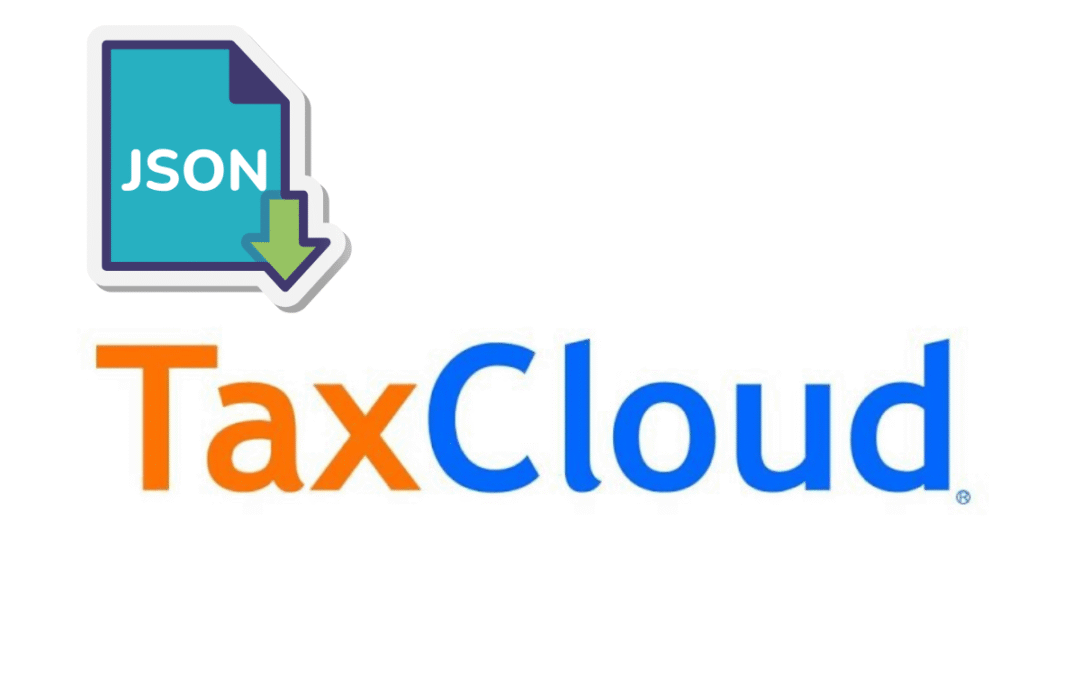Taxcloud is a sales tax compliance solution that calculates sales tax in real time for every city, state, and jurisdiction in the US. It’s designed to keep track of your sales tax, the products exempted from taxation, as well as the cities and states the exemptions apply.
A JSON text file, on the other hand, is a text-based file format that people (especially developers) use to transfer data from one application to another. Compared to other file formats, like CSV or XML, a JSON file is preferred for providing more clarity and an easy-to-read data structure that makes it more convenient even for the non-tech savvy to use.
In this article, you’ll learn how to download a JSON file from taxcloud and use it to simplify your tax filing process. So, without wasting any more of your time, let’s dive in:

Understanding TaxCloud and JSON Basics
Taxcloud is a digital tax platform that’s been around for 15 years, automating sales tax compliance in over 13,000 sales tax jurisdictions in the US.
What is JSON?
JSON stands for JavaScript Object Notation. It’s simply a text format people use to store, transfer, or transport data files online. It’s one of the easiest file formats to understand online.
Almost every web application you’ve ever interacted with on the web supports JSON data format. But what makes it even more interesting is the fact that you can easily open this human-readable file format in almost any text editor.
Developers use it to store, read, update, and delete unstructured data from a server, with suitable authorizations of course.
| Subject | |
| About TaxCloud | TaxCloud is a popular sales tax solution that’s been around for more than 15 years, automating sales tax in over 13000 US jurisdictions. |
| Key Features | Automated Tax collections
Accurate Sales Tax Calculation Integration with some of the widely used ecommerce solutions via plugins or plug-and-play modules |
| Certified Service Provider (CSP) | TaxCloud is CSP-approved |
So Why Use JSON for Sales Tax?
The sales tax department has dropped many other file formats in favour of JSON file format for a number of good reasons. The first one being it’s versatile and can, therefore, be used to transfer almost any type of data.
It’s also lightweight, which allows for a smoother, quicker, and more efficient document uploading and downloading, especially when compared to file utilities like excel.
How to Open a JSON File – The Simplest Way
Use a Text Editor: The easiest way and most convenient way to open a JSON file is to use a standard text editor such as Notepad for windows, TextEdit for Mac, or any other third-party text editor you fancy.
TaxCloud Data Structure
TaxaCloud combines a string of data structures to accurately compute and collect sales taxes in the US.
It incorporates different types of data structures:
- Jurisdiction Data Structure: Tax cloud collects data on tax rates, rules, and exemptions for each US city, state, county, and any other jurisdiction. They then use this data to accurately compute sales taxes for businesses in the US.
- Product and Service Data: Tax cloud accurately categorises tax items based on taxability, assigning each tax item an accurate rate.
- Customer Data: Tax cloud has data on billing and shipping and knows the tax rate assigned to each.
- Transaction Cost: Tax cloud can efficiently process transaction data, including itemised quantities and cost to accurately determine the right tax amount.
Prerequisites
There are no prerequisites to filing your taxes with Tax Cloud. However, it helps to have a basic understanding of how sales tax and ecommerce operations work. Luckily for you, Tax Cloud has comprehensive documentation and enough resources to guide you every step of the way.
If you’re planning to integrate TaxCloud into your ecommerce store, you might want to begin by familiarising yourself with API integrations, part of which includes understanding the JSON file format.
TaxCloud understands that not every business person in the US is tech savvy, and for this, they have all kinds of plug-play plugins and modules that you can easily integrate into your ecommerce system to start tracking your taxes for easy filing.
Step-by-Step Download Process

TaxCloud provides detailed APIs that you can use to easily retrieve tax data in JSON file for analysis, reporting, filing, and any other purpose.
So, how do you download this data from TaxCloud?
Here’s a step-by-step guide on how to go about it:
- API Authentication: Before you begin the whole process, you’ll be required to first head over to TaxCloud and request for API credentials. In this case, you’ll be given a unique API Key and secret key that you’ll be using to fetch your tax data from their system.
- Secure Storage: Store the API and secret key you’re given in a secure place. You’ll need them to authenticate every request you make.
- Follow TaxCloud Documentation for the Relevant: TaxCloud provides a series of end points. You’ll have to dig through their documentation to identify the right end point for the JSON data you’re looking for.
Here’s an example of an end point you’ll find on their website:
https://api.taxcloud.com/v2/transactions?start_date=2023-01-01&end_date=2023-12-31
This end point produces data for a specific date range.
Conclusion
JSON file is the solution to many of the problems tax filers used to have with legacy data formats such as CSV, XML, or Excel. It’s easy to read, analyse, and an easy way to store data online and transfer it among different web applications.
